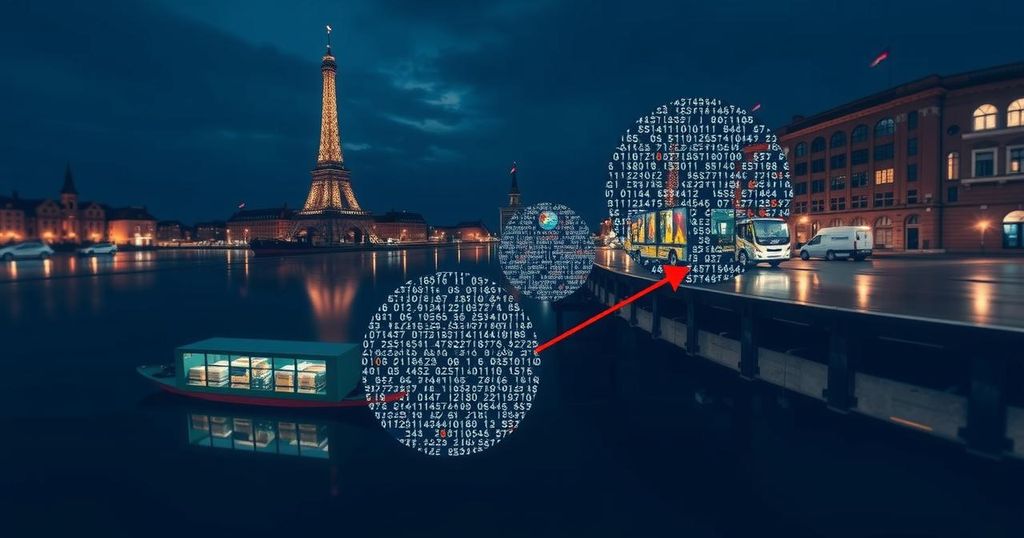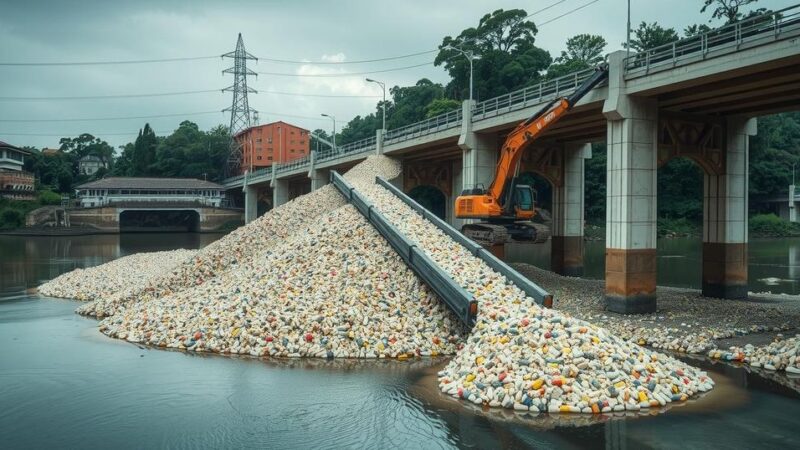The Brussels Conversations highlighted vital issues regarding port decarbonization, the economics of climate refugees, and the logistics industry’s future amidst climate change. Experts discussed the projected decline in fossil fuel transportation through ports and the need for adaptation to new energy sources. They emphasized the socioeconomic impacts, particularly concerning climate-related migration. Ultimately, the discussions fostered a collaborative atmosphere aimed at developing sustainable solutions to these complex challenges.
In a recent gathering in Brussels, discussions centered around crucial themes concerning decarbonization, port logistics, and the socio-economic implications of climate change, particularly the plight of climate refugees. The event was framed by the launch of the updated edition of “Supergrid Super Solution: A Handbook for Energy Independence and a Europe Free from Fossil Fuels.” One significant topic was the decarbonization of ports, where experts highlighted the impending changes in global trade dynamics. A notable insight shared was that approximately 40% of the bulk goods transported across borders consist of fossil fuels, a volume expected to drastically decline as the world transitions to greener energy solutions. This shift entails that ports, traditionally reliant on these fuels, will need to adapt to an increasingly competitive container market, risking financial instability, potential bankruptcies, and consolidation. Experts anticipate a reduced volume of raw fossil fuels and iron ore, prompting ports to expand their capabilities toward alternative energy sources. Presently, few ports are equipped to manage the evolving bunkering needs, with many still relying on Very Low Sulfur Fuel Oil (VLSFO) and biodiesel. Experts agree on the complexity of adopting multiple fuels, which could further complicate logistics and generate additional costs amid declining revenue. Furthermore, the discussions ventured into economic perspectives, particularly concerning climate refugees stemming from environmental disasters. Historical examples, such as the Syrian refugee crisis exacerbated by drought conditions, illustrated the direct correlation between climate change and forced migration. The discussions advocated for comprehensive economic modeling to address anticipated refugee flows and identify proactive strategies to mitigate these effects. As logistics continue to evolve, freight operators will face pressures to electrify amidst rising costs and the growing need for decarbonized supply chains. Companies that are unable to adapt may lose competitiveness as public companies demand transparency and accountability regarding emissions. Conclusively, the conversations in Brussels revealed a significant intersection between climate action, port logistics, and economic considerations. Attendees expressed optimism for future innovations in electrifying the transport sector and addressing the multifaceted challenges posed by climate change, demonstrating a collective commitment to seeking sustainable solutions.
Port decarbonization is a pivotal issue in today’s climate discussions, especially given the substantial volume of fossil fuels transported via maritime logistics. With over 900 major ports worldwide facing shifts in their operations, they must transition to accommodate low-carbon alternatives as traditional bulk fuel volumes decline. This transformation is essential not only for the sustainability of ports but also for global efforts to mitigate climate change. Additionally, the economic repercussions of climate-related migration are increasingly relevant, as exodus rates rise due to environmental factors, necessitating urgent and effective policy responses.
In summary, the recent discussions in Brussels illuminated critical themes surrounding port decarbonization, economic implications of climate refugees, and the logistics industry’s future. With the clear necessity for ports to adapt to declining fossil fuel volumes and the demand for alternative energy sources, proactive strategies must be established. Furthermore, understanding the economic effects on communities displaced by climate change is essential for developing comprehensive solutions to both climate adaptation and mitigation. The collaborative spirit of the attendees underscored a commitment to drive innovative changes across sectors to tackle these pressing challenges.
Original Source: cleantechnica.com







